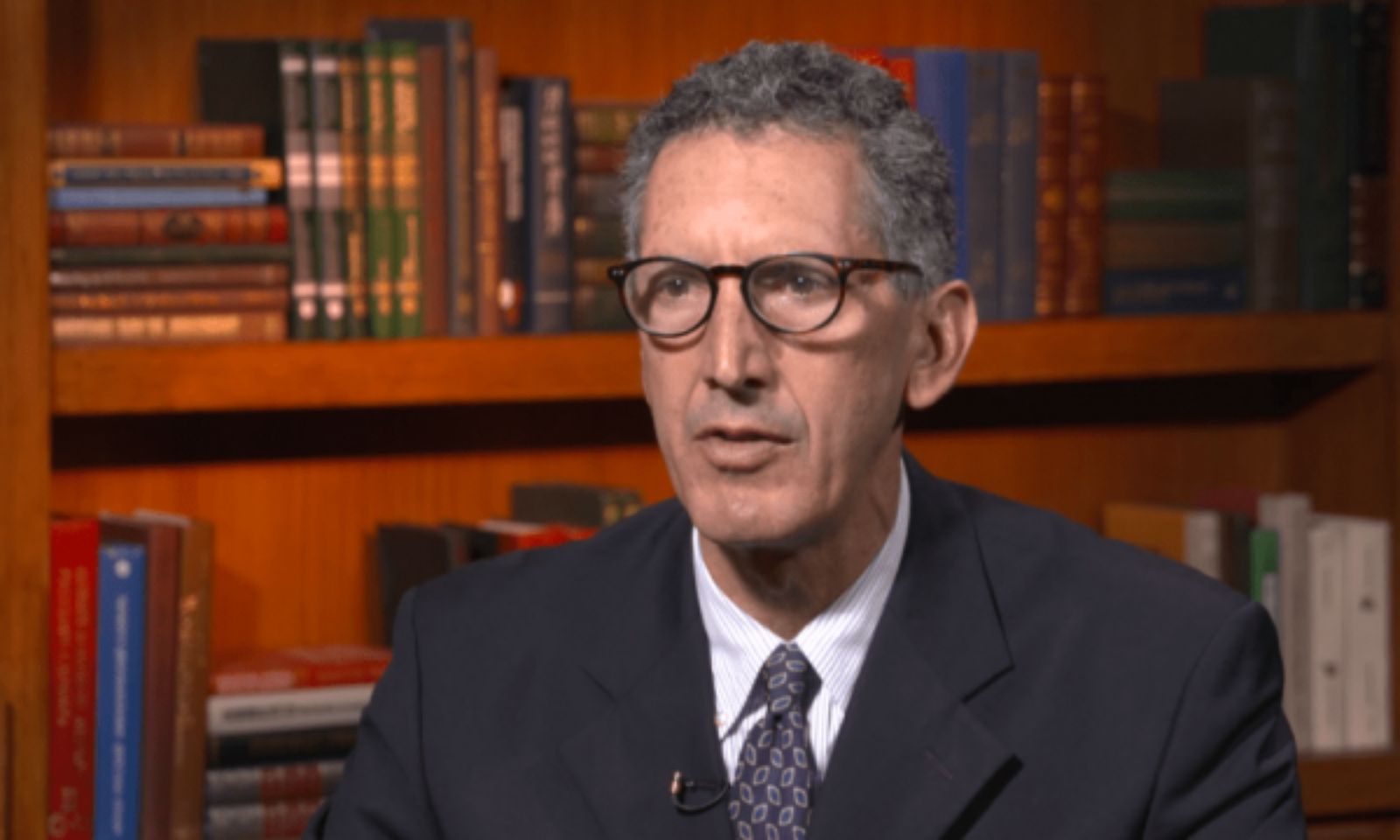Trump’s Return or Harris’s Victory? Changes Await the Balkans, Says Joseph Edward P. Joseph, a lecturer at Johns Hopkins University in the U.S., discusses the potential impact of the U.S. elections on the Western Balkans in an interview with Radio Free Europe. Joseph suggests that a possible return of Donald Trump to the presidency could lead to significant changes in U.S. foreign policy. In such a case, he does not rule out the possibility of an agreement with Russia over Ukraine, which, he says, would directly affect the Balkans.
Regarding a potential victory for Kamala Harris, Joseph is uncertain about what it would bring but notes that it would be important for Harris to address the “Balkan paradox.”
“Since the Russian invasion of Ukraine in February 2022, the West has become stronger and more united, while Russia has become weaker and more isolated, yet the situation in the Balkans has worsened. This is the Balkan paradox,” Joseph says.
He also comments on CIA Director William Burns’ visit to several Balkan countries last week.
Radio Free Europe: The U.S. election campaign is gaining momentum, with the race between the two candidates being extremely tight. There is a lot of uncertainty—polls show Harris or Trump ahead at different times. How does this uncertainty affect the Western Balkans?
Edward P. Joseph: The fact that the race is tight does not affect the Balkans, but the possibility of Donald Trump returning to the presidency does. Any other Republican candidate—whether past ones like Mitt Romney or George Bush, or later ones like Marco Rubio or Nikki Haley—would not prompt such questions about the Balkans. It would be of interest, but it would not directly affect the Balkans.
What affects the region is the potential return of Donald Trump and his fundamentally different approach to foreign policy and America’s role in the world. This would undoubtedly impact the Balkans and the rest of the world. Because, [in that case], there is the prospect of a completely different alliance—a potential alliance with autocrats—that would question the continued commitment to certain principles in the Balkans.
Radio Free Europe: Specifically, how would a possible return of Trump impact the Balkans?
Edward P. Joseph: One of the main issues affecting the Balkans is Ukraine and the war in Ukraine. He [Trump] might attempt to reach a deal with Russia over Ukraine and push Ukraine toward a territorial settlement. If he does this, showing a kind of friendly relationship with Putin, it would immediately impact the Balkans. Because an alliance with autocrats like Putin implies a softer approach toward [Serbian President Aleksandar] Vučić. In my view, even the Biden administration has been too lenient toward him.
It should be noted that Harris, when accepting the Democratic nomination in Chicago, said she would not align with autocrats.
Radio Free Europe: In foreign policy, the U.S. has major issues on its agenda—you mentioned the war in Ukraine and then the war in Gaza. Amidst all these events, they have also turned their attention to the Balkans—something evidenced by the recent visit of the CIA director…
Edward P. Joseph: What we can glean from this visit is the ongoing concern of the Biden administration for the Balkans. It should be remembered that at the beginning of this administration, some officials publicly stated in Congressional hearings that there was no reason to worry about conflicts in the Balkans. Now, in August 2024, you have the CIA director involved in extraordinarily complex negotiations for a ceasefire [in Gaza], visiting at least three Balkan capitals.
The reason for his visit is not to maintain interest in the region but to address concerns and issues. And this is different from what was said at the beginning of the Biden administration.
Radio Free Europe: Do you think the U.S. is trying to achieve something in the Balkans before the elections?
Edward P. Joseph: I do not see it that way. It would be nice if there were some initiative, but I do not see Burns’s visit in this context. It was a visit to deter, to warn actors like [President of Republika Srpska Milorad] Dodik and others who might take destabilizing steps. And Burns is a very good messenger.
His visit was a good move, but I do not see it as part of any rescue mission or solution.
If there are any covert initiatives, it would be good, but I do not see them as part of his visit’s objective. For me, it was a stern warning to those who would worsen things, not to improve things or to resolve open issues.
Radio Free Europe: What do you think Burns might have discussed in Kosovo?
Edward P. Joseph: Look at the photo that was published. You see Burns sitting next to [Kosovo Prime Minister Albin] Kurti. To Burns’s right is the U.S. Ambassador to Kosovo [Jeffrey] Hovenier, taking notes.
I think what Burns told Kurti was the same message that Hovenier had conveyed— not to undertake unilateral actions and not to destabilize the region.
As CIA Director, Burns might also have sought to raise awareness about Russia’s activities and interests in the region.
On the other hand, Kurti might have pressured Burns regarding the U.S. position on Vučić and the Banjskë attack. Burns is the ideal person to ask about Banjskë, what Vučić knew, and what his role was. This could have been an ideal moment to raise this issue. I do not know if Kurti did this, but the CIA chief is the ideal person.
I also believe that Burns had an open meeting with Vučić in Belgrade, where he clearly informed him that we know what happened in Banjskë, we know your role, President Vučić, and we know the activities of other figures in your government. So, we know what your government has done to destabilize the situation, and we expect you to stop those actions.
I hope Burns said this in Belgrade, but, of course, those are confidential meetings and I do not know.
Radio Free Europe: Do you think this visit will change anything in the Kosovo-Serbia relations?
Edward P. Joseph: Perhaps not dramatically right away, but it has potential. Because if Kurti and Vučić clearly understand that the United States knows—and naturally they do, as Burns is the head of intelligence—what actions destabilize the situation and that the U.S. will not tolerate them, then such an understanding could remove some temptations from the table and possibly refocus attention on cooperation. I think this has potential, but I do not see anything immediate or dramatic.
Radio Free Europe: In Bosnia, one entity is led by individuals on the U.S. blacklist, and there are similar individuals in the Serbian government as well. Can anything be achieved with these people?
Edward P. Joseph: I hope so. We have indications that Burns’s visit had some effects because Dodik later declared that the Republika Srpska’s aim was never to separate from the rest of Bosnia and Herzegovina. This suggests that Burns’s message in Banja Luka had an impact.
In Belgrade, I am not sure if the message was received because the Biden administration has a conflicting approach to Belgrade, unlike Banja Luka. Certain American officials continuously praise the Serbian government for what it does, for example, in Ukraine.
Radio Free Europe: You earlier spoke about the impact of a possible Trump victory on the Balkans. I want to ask you about a possible Harris victory. How would it impact the Balkans and the Kosovo-Serbia issue specifically?
Edward P. Joseph: I do not know the answer to this question and I do not know if it would be a continuation of Biden’s approach, which in some aspects has been a continuation of Trump’s approach. Trump pushed for the mini-Schengen, Biden has pushed for the Open Balkans.
The situation in the Balkans has worsened, and if Harris considers the difficulties Biden has faced in the Balkans since the beginning of the war in Ukraine and tries something different, I do not know.
Radio Free Europe: Do you think the U.S. should be more engaged in the Balkans?
Edward P. Joseph: If you ask me what Harris should do… she needs to carefully examine the difficulties faced by the Biden administration and address—the so-called Balkan paradox. She needs to confront the Balkan paradox.
And what is the Balkan paradox? After the Russian invasion of Ukraine in February 2022, the West is stronger and more united, and Russia is weaker and more isolated, yet the situation in the Balkans has worsened. This is the Balkan paradox. Why has the situation in the Balkans worsened when the West is stronger and more united and Russia is weaker and more isolated? Why are relations between Kosovo and Serbia even worse? Why has the internal situation in Serbia deteriorated? Why have relations between Serbia and Montenegro worsened? Why have relations between Serbia and Croatia deteriorated?… Kamala Harris and her advisors should address the Balkan paradox. And unlike senior officials of the Biden administration, they need to stop pretending it does not exist.







